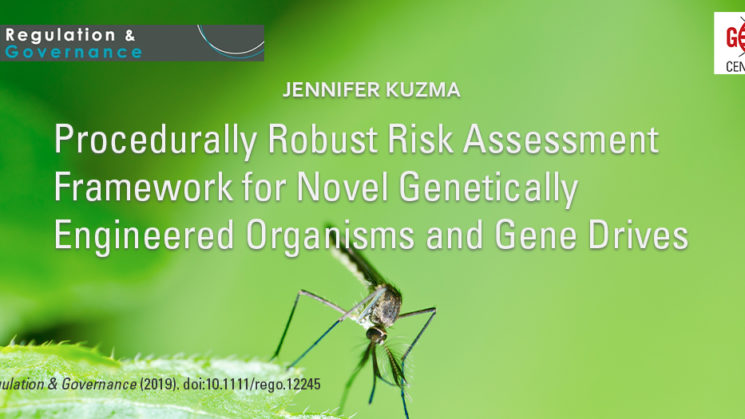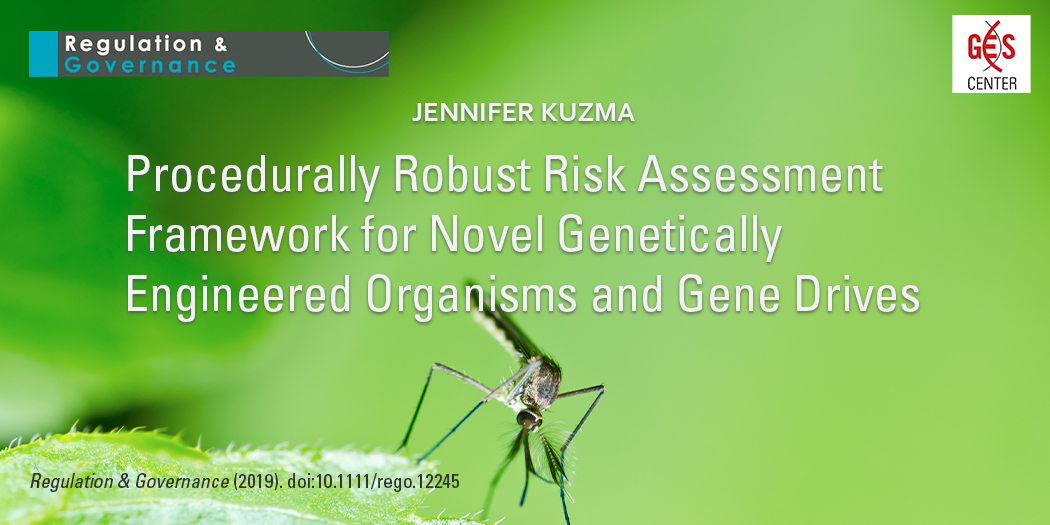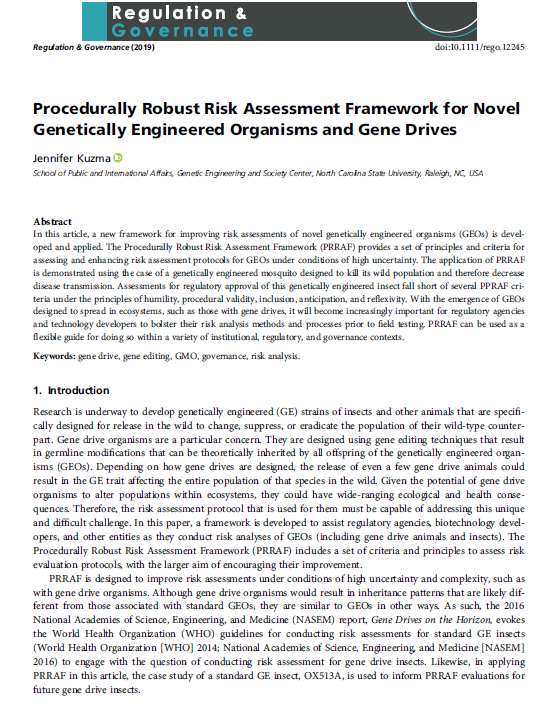

Procedurally Robust Risk Assessment Framework for Novel Genetically Engineered Organisms and Gene Drives
Abstract
In this article, a new framework for improving risk assessments of novel genetically engineered organisms (GEOs) is developed and applied. The Procedurally Robust Risk Assessment Framework (PRRAF) provides a set of principles and criteria for assessing and enhancing risk assessment protocols for GEOs under conditions of high uncertainty. The application of PRRAF is demonstrated using the case of a genetically engineered mosquito designed to kill its wild population and therefore decrease disease transmission. Assessments for regulatory approval of this genetically engineered insect fall short of several PPRAF criteria under the principles of humility, procedural validity, inclusion, anticipation, and reflexivity. With the emergence of GEOs designed to spread in ecosystems, such as those with gene drives, it will become increasingly important for regulatory agencies and technology developers to bolster their risk analysis methods and processes prior to field testing. PRRAF can be used as a flexible guide for doing so within a variety of institutional, regulatory, and governance contexts.
Keywords: gene drive, gene editing, GMO, governance, risk analysis
Dr. Jennifer Kuzma in a Goodnight-NC GSK Foundation Distinguished Professor in Public and International Affairs and Co-director of the Genetic Engineering and Society Center at NC State University.
Cite as:
Kuzma, J. (2019), Procedurally Robust Risk Assessment Framework for Novel Genetically Engineered Organisms and Gene Drives. Regulation & Governance. doi:10.1111/rego.12245. Download PDF
